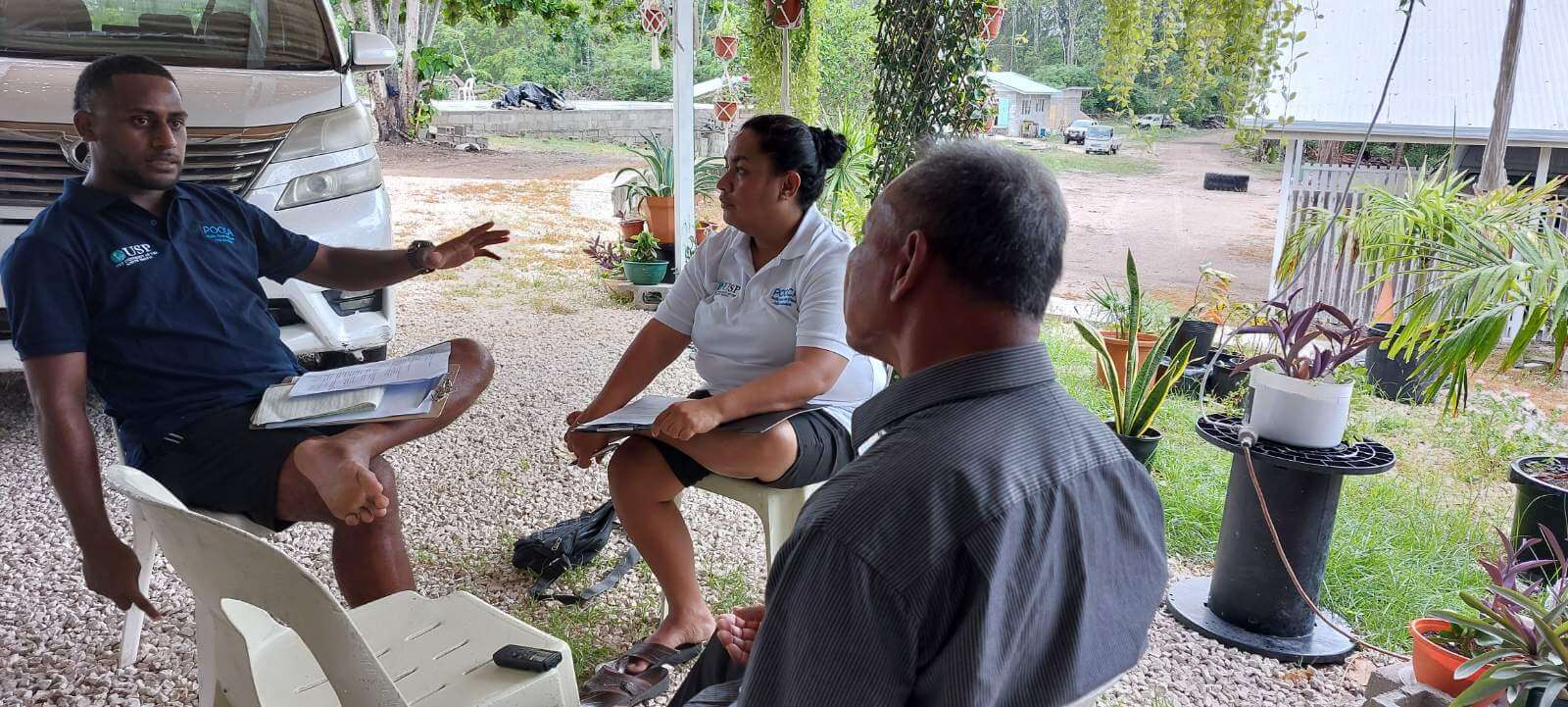Related News

As a low-lying island nation, Nauru is one of a number of Pacific Island countries highly vulnerable to the impacts brought about by climate change.
The University of the South Pacific’s (USP) Pacific Ocean and Climate Crisis Assessment (POCCA) project team recently visited Nauru from the 6th-13th May, 2023 as part of its continued mission to capture stories from paPacificommunities on utilising their indigenous systems to help them adapt to climate change.
Sharing their experiences with the team, the islanders openly shared what they are witnessing in terms of rising sea levels, coastal erosion and saltwater intrusion.
One thing the islanders admit is being greatly affected is their freshwater source, whereby islanders have had to rely heavily on desalination plants and rainwater harvesting.
The impacts of climate change in Nauru are such that the rainfall pattern is changing with the country experiencing more frequent and intense droughts putting pressure on the freshwater source given the country’s heavy reliance on groundwater for its freshwater needs.
Growing of food especially breadfruit is gravely affected with breadfruit trees dying and fruit trees such as pandanus, coconut trees and mangoes produce little to no fruit.
Despite the grim reality, the people continue to adapt by making use of whatever they have in order to try and grow what they can.
“I use my grandson’s bath water, fish blood, water from rice cleaning and aircon water to grow papaya. I find that bath water is effective against fungus and thus prevents ant invasion,” was a response from a lady from Anetan District in her efforts towards building resilience.
In a bid to help its people, Nauru has implemented a number of adaptation and mitigation efforts to address the impacts of climate change.
One of the key initiatives is the Nauru Climate Change Adaptation Program (NCCAP) which was launched in 2013 and aimed at improving the country’s resilient efforts which includes the development of drought resistant crops, implementation of water conservation measures and efforts to decrease the countries dependence on non-renewable energy sources.
Nauru is the third country visited by the POCCA team, with Fiji being the first.
The POCCA Project is a three-year project funded by the Ministry of Foreign Affairs and Trade (MFAT), New Zealand co-partnered by the Pacific Centre for Environment and Sustainable Development (PaCE-SD), University of South Pacific (USP) and the Macmillan Brown Centre for Pacific Studies, University of Canterbury (UC) under separate grant funding arrangements.